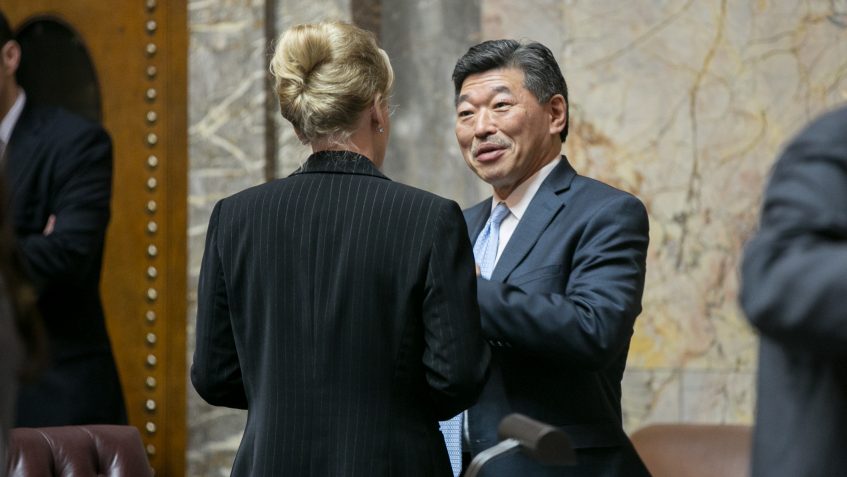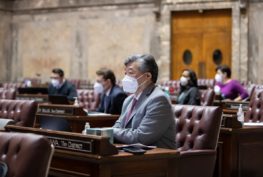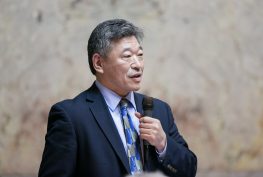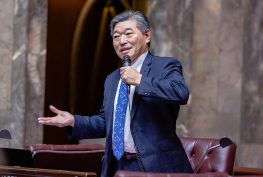Hasegawa: State ‘not meeting our responsibilities’ on cannabis
The Legislature could finance a state bank that could handle cannabis transactions safely for less money than it will cost to provide armed security for cannabis transactions at Department of Revenue offices and Liquor Control Board offices, Sen. Bob Hasegawa said today.
Hasegawa tried to amend the Senate’s proposed operating budget late Wednesday to shift funds allocated for security at those offices to the creation of a state bank, but his amendment failed. The Beacon Hill Democrat has proposed the creation of a bank to handle cannabis transactions but his Senate Bill 5955 died in committee.
The operating budget allocates $588,000 for security in 2014 and $856,000 in 2015. Hasegawa’s bill sought just under $500,000 annually to finance the state bank.
“The major cash transactions by cannabis growers and retailers present a cash-rich target for criminals that inadvertently puts the public in harm’s way,” Hasegawa said. “We have an urgent need to ensure public safety. The approach in the operating budget protects only the cash received as tax payments, and that’s the portion that’s the least at risk.”
Growers, producers and retailers who conduct transactions in rural, low-traffic areas face higher risks and have greater safety needs than state offices, Hasegawa said. His bank proposal would provide a secure, safe marketplace for everyone involved in cannabis sales — from growers to sellers to purchasers and everyone in between — and do so for a smaller cost than the funds allocated to secure the state offices.
“We’re not meeting our full responsibilities to the public if we provide only a minimal solution to these public safety concerns,” Hasegawa said. “And the irony is that we can protect the entire marketplace for less money than is currently proposed.”
A state banking system for cannabis could also track cannabis transactions to the penny, enabling the state to account for all tax revenues that should be reported as well as detect any cannabis-related activities by organized crime, Hasegawa said.



